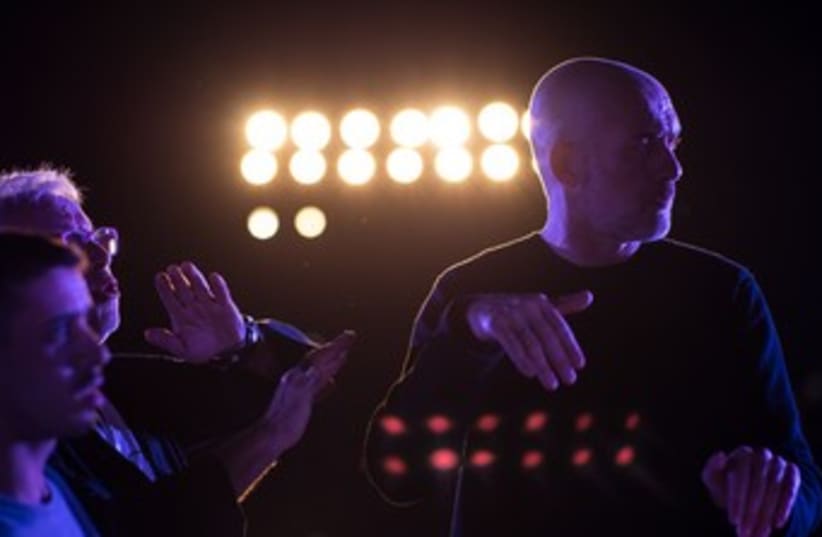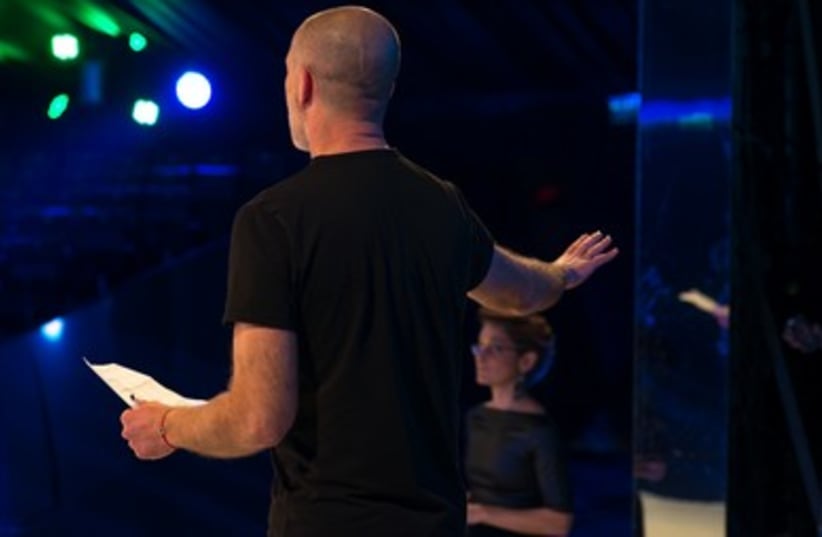
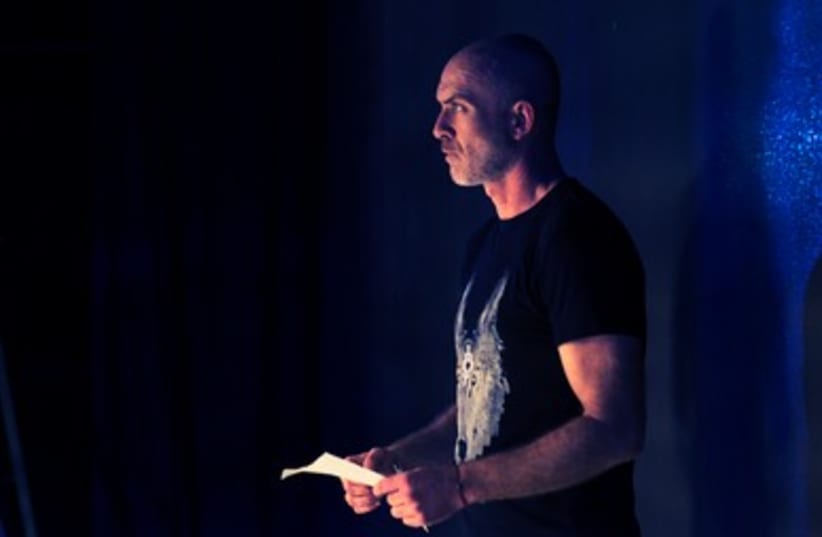
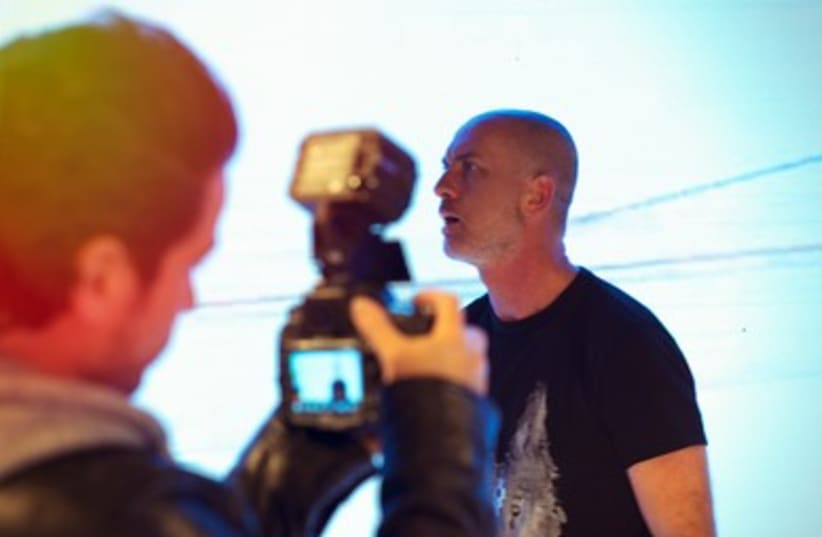
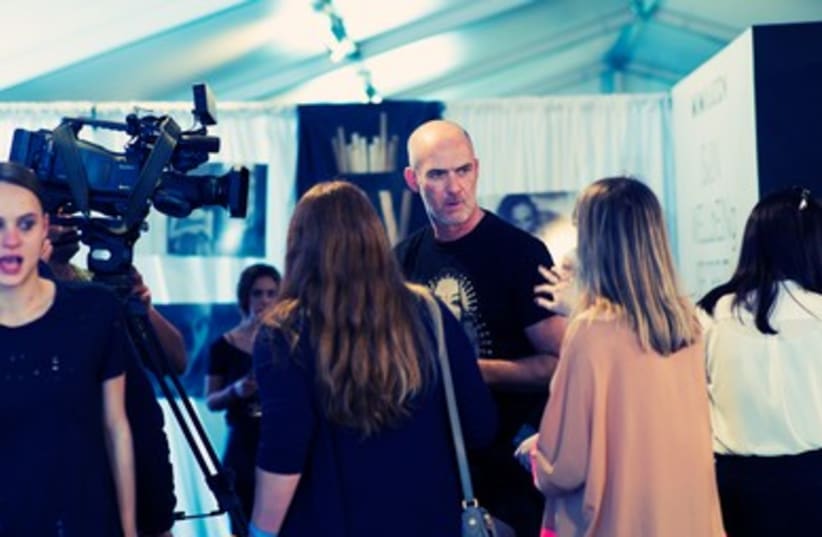
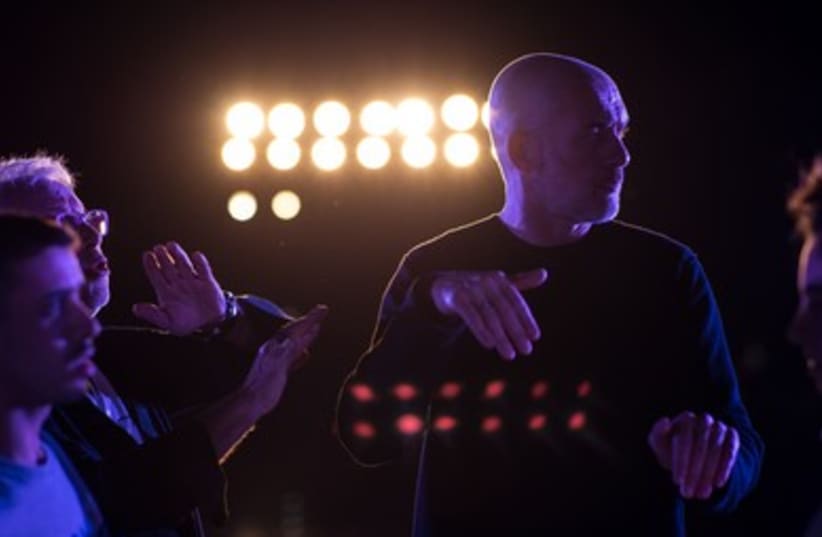

In 1991 Reif started producing and directing fashion shows for brands such as Castro, Oberzon and Tovale.He also produced new perfume and other luxury product launches. In the late 90’s Reif made a career switch to television production, including reality shows, the fashion awards ceremony and later on movies.He spent eight years in LA still working as a producer and director for fashion events, television and movies, to come back to the holy land three years ago in 2011. This is also when he decided to recreate fashion week in Tel Aviv.I sat down with Motty for breakfast in Ramat Aviv’s “Shooster” center in the northern part of Tel Aviv, where we both reside. I’ve never officially met Motty before, but we did work side by side in fashion week two weeks before we met, which is where I was able to observe him work, get a taste for the man and the legend and develop a curiosity about him, which was only partially fulfilled by our lovely breakfast together. I find Motty is the kind of man that takes a little time to get to know, as he has the tough public image and a very different, softer man inside.Until next time, here are some highlights from our one on one:EM: What would you say were the biggest challenges of producing fashion week in Israel?
MR: The biggest challenge is finding the budget to make it happen. you know, we are here (Israel) its a verydifficult time for the fashion industry in Israel.EM: How so?MR: We will never be more than 6 million, and lately all the biggest brands like Zara and H&M have arrived in IsraelEM: SO it brakes the market for smaller Israeli brands and independent designers.MR: Don’t forget that when you buy an Israeli outfit can be much more expensive than buying Zara forexample.EM: Sure. So budget is one of the biggest challenges.MR: Yes. For me, to find the budget to make it happen and not taking from the designers. You know, thedesigners are paying a symbolic amount, a very symbolic price that barely covers the cost of the models.EM: And Gindi is the main sponsor for this or there are other contributors?MR: Gindi is the main sponsor and besides that we have the tourism office that paid for the wholeinternational press to arrive, for the buyers to come.EM: Is it profitable production to do, fashion week?MR: For me?EM: For whomever is creating it.MR: For me no. For the industry yes. I’m not doing it for the money. I’m very Zionist, I started to do it causeI moved back from LA, three years ago, and when you live abroad, as you know, every time you see thepress referencing Israel, its all about violence, and the issues with the Palestinians. So when I moved back I said to myself, If I can get twenty or thirty fashion journalists to come to Tel Aviv Fashion week this will bemy contribution (to Israel).And for the first time (this past fashion week) we brought 120 international journalists. Big success for Israel to get such amazing coverage all over the world. For the third fashion week, the goal was to bring in the buyers in addition to the world press. And for the first time this year we were able to bring in 40 buyers. And I can tell you that as of yesterday I was told we (the fashion designers) made more than one million dollars in selling.EM: That’s amazing. Congrats! A lot of fashion designers love you now.MR: I grew up, I’m working 30 years (in this industry) its one big family. I totally see it as a one big familyand I’m part of it.EM: Beautiful. So this year buyers also came and this is a big step for fashion week TLV. Does it get easier with each time:MR: Nothing is easy. You know, 22 shows in three days.EM: How do you do it? do you have a method of working these long days, having to be in tune and on the spot in a fast paced and probably high strung environment?MR: My work is my pleasure. I love my work, I love what I’m doing. Until we arrive to the location, its onlyDaniela, my producer and myself, thinking of everything, I don’t need much more than this. I’m a controlfreak and I have to be in control of every detailEM: That bring me to a question that I had for you; How do you handle your team are you able to delegate authority and feel calm about the result or do you micro manage your employees?MR: I must do everything, its all about details. I’m never satisfied from my work, Never. I must tell you thatthis time I was close to being satisfied, I’m not, but I was close. Everyone did such an amazing job, thedesigners were beyond any expectation, really. They surprised I think even themselves. And its nice, its thebeginning, and everything that I did in my life is a process. Even doing this Tel Aviv Fashion week takestime. Its takes time. Its only the third year, I give myself five years to make Israel a very successful fashionindustry outside of Israel. I believe that fashion can bring billions to the country.EM: What needs to change in the fashion industry in order for that to happen? We know there are issues for young designers in Israel with getting textiles they need here, with producing here.MR: It's all about production, and we will take care of that too.EM: Being able to produce in IsraelMR: To produce here, in cheaper rates.EM: I know Maskit’s production is in Israel.MR: Listen, I don't know the word "NO," and I don't know the term "we cannot." Its a lot of work, It takes a lot of people to understand the opportunity, especially the government; the treasury department, we havehitachdut hataasiyanim with us, we have machon hayetsu with us, we have Iriat Tel Aviv with us but weneed more and it will happen, we’ll make it happen, I’m totally sure of it. As long as we are healthy and we’lldo it all, eat your omelet!EM:That wraps it up, thank you Motty for a lovely and inspiring morning!For more inspiration visit www.ellamanor.com.
For questions or suggestions please email team(at)ellamanor.com.
Follow Ella on www.facebook.com/ellamanorphoto
Follow Ella on Instagram at http://instagram.com/visuellaIllustration by Efrat de Botton
